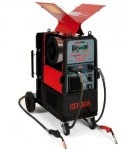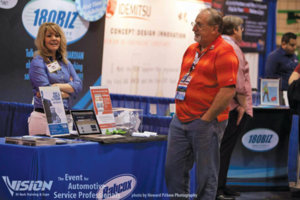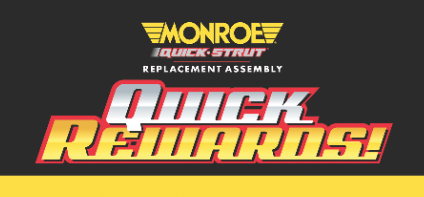The concept of optimism is best defined in terms of who we are, where we’ve been, where we are in our lives at this moment in time and where we believe the odyssey we’ve embarked upon is likely to take us. The first element of such a definition is that the world in which we live is the best of all possible worlds. The second is that goodness pervades reality. The third suggests that good will ultimately triumph over evil. And, the fourth suggests that optimism is identifiable by the tendency to search for the more positive aspects of any given situation, coupled with the expectation that things will (always) work out for the best.
I know this not because I am an optimist: G-d knows, I’m not. I know this because I am the child of a child of the Great Depression, World War II and a lifetime in our industry. And, as such, have learned to accept reality for pretty much what it is…reality. In fact, the concept of optimism was so foreign I actually had to look it up to be sure I understood it well enough to explain how and why I believe it has become so critically important to the future of our industry.
But, before we do that, let’s take a look at the antithesis of optimism: pessimism. Optimism comes from optimum, the Latin for best. Pessimism comes from pessimus, the Latin for worst. Best and worst are the polarized extremes of what you and I know and experience every day as reality.
I don’t know too many people who live exclusively at either end of that spectrum, but the ones who do are generally medicated and under a doctor’s care! The rest of us are adrift on a sea of constantly changing currents that takes us from good to bad, best to worst, optimism to pessimism and all points in between depending upon the moment.
When your entire universe is driven by deadlines, many of which are unrealistic and self-destructive: when, as a manager or owner, all your time is spent on crisis management, damage control and failure analysis, it’s easy to find yourself drifting toward the dark side of the Optimism/Pessimism Continuum. There was a time I believed my father was the ultimate pessimist living almost exclusively within the specter of the dark side. Not only did his glass seem half empty most of the time…it was half empty and evaporating!
That didn’t stop me from wanting to be with him. From the time I was old enough to climb up on an old wood and wire milk crate so I could clean the center of the windshield while I filled the tank, I begged my father to take me to work with him. I grew up in his world, a world in which just about everyone in the neighborhood had endured the hardships of the Great Depression and the struggle of World War II. I never really understood what that meant or the impact it had on me as a child — but as a storyteller I carry the images they shared with me to this day.
I never realized how much the responsibility of running a business like yours or mine in an industry like ours colors how we see the world either. I never had to. Someone else was sitting in that seat. But, from the day I found that seat empty and accepted the responsibility as my own, I found out. I found out just how much the day’s events can impact me; just how much my being affected can impact everyone else. Sitting in that seat has taught me a lot.
As an apprentice, I learned to see the world in black and white. Parts were either good or bad: in spec or out; they either worked or they didn’t. Performance was either acceptable, or it wasn’t. I disciplined myself to disregard everything that worked; everything that was performing as designed, in order to focus upon only that which had failed.
BLACK OR WHITE
When your entire professional life is binary: filled with ones and zeroes, things that are either good or bad, in order to make credible recommendations to your customers about what to keep and what to discard, what to fix now and what can wait ‘til later: it’s hard to leave those lessons behind, especially when they’ve worked.
My father was also my mentor and I learned to see the world through his eyes, was taught the same lessons he had learned and ultimately came to accept the same philosophy. I embraced that philosophy as I transitioned into my role as the leader of our company. I learned to ignore all that was good and everything that was working, in order to focus on every failure, shortcoming, blemish and imperfection that could be found in the daily operation of our business, and, subsequently, in the way our industry functions.
AN EASY ‘READ’
It’s hard to be an optimist if you aren’t optimistic! And, it’s hard to be optimistic when everywhere you look something is broken! But, that really didn’t bother me. Focusing on what was wrong, finding the imperfection was comfortable and familiar: something I was, and still am pretty good at!
Unfortunately, it wasn’t always productive…It wasn’t always productive because I’m fairly transparent. So transparent I won’t play cards. I can’t. I have too many “tells:” too many ways for people to “read” me, too many ways for them to know what I’m thinking or feeling at any given moment.
Playing cards is optional. I can avoid contact with other people; people who might be able to determine what kind of a hand I’m holding, or what I might be thinking by not playing. Running the business isn’t. And, after all the years this crew has been together, I guess I’ve become a pretty easy read!
When you’re a technician, focusing only on that which has failed, will make you successful! When you’re a business owner, focusing solely on that which has failed will make you…depressed!
That’s because the pieces and parts you’re constantly involved with as a technician don’t have any feelings and aren’t likely to react adversely based upon what you say or do. The same cannot be said for the people with whom you work. They have feelings. They have wants, needs and expectations and they look to you for leadership, guidance and support. Most of all, they look to you for encouragement.
If you act as if the sky is falling, they will begin scanning the heavens. If you act as if everything is going to be OK, don’t be too surprised if things turn out OK because the people around you do everything they can just to ensure things do!
But, how do you go from being a self-avowed pessimist to a wide-eyed optimist without abandoning all the tools that have helped you to succeed?
You become a self-proclaimed realist! You look to the center of the Optimist/Pessimist Continuum for what is working and what could work better, avoiding either extreme.
The journey begins with certain basic realizations. First and foremost, perhaps, is the awareness that things don’t happen to you…they just happen, and sometimes you just happen to be the one standing there as the lightning strikes, the scaffold falls, the bolt breaks, someone backs into a customer’s car or a truck falls off the rack. There is no great cosmic conspiracy. There is no evil plot.
Most things are neither good nor evil, they just are – The way you and I frame those things will determine how they are perceived…not only by us, but also by those close to us. And, how they’re perceived will color whatever reality flows through them.
We are in the middle of the worst economy we’ve seen in decades. Mortgages continue to fail. Fuel prices continue to rise. The market continues to fall and the dollar continues to weaken. It would seem there is little room for optimism.
And, yet…our June was the best we’ve ever had. We are ahead of last year’s numbers for the first six months of this year and will continue to exceed both our expectations and our projections for the balance of the year. Why? Because we know that businesses like ours can do well in a ‘down’ economy, just as we know the hardships we now face short term as a nation can and should prove positive for both our country and our industry in the long term.
Sure, fuel prices are going up — so high and so fast it hurts! But, those same increases are making it more attractive to rebuild our manufacturing capacity here at home rather than face increased shipping costs to move “cheap manufacturing solutions” over great distances or across two oceans.
Energy is more expensive than it has ever been, but we are finally moving toward energy independence and the kinds of technological solutions that should have followed the Energy Crises of 1973 and 1979. The dollar is weak…making American products and services even more competitive and ultimately more attractive in a truly global economy.
The economy may be making it harder for us to travel overseas, but it’s making it easier for people from all over the world to come and leave their money here! It also means the people who are not going overseas just may be vacationing here at home, traveling to and from wherever they’re going by car or truck, which means increased opportunity for you and me.
And, perhaps most important, people are maintaining their cars and trucks more aggressively in order to maximize fuel economy and they’re keeping their vehicles longer in order to avoid taking a huge financial loss when purchasing or leasing a new vehicle.
We will survive because we have to. I know we will. I know we will because we have for generations. We will survive…if we want to. All it takes is the ability to see the future as it could be in the best of all possible worlds; a future in which goodness pervades reality; a future in which that goodness always triumphs over evil; a world where everything always works out for the best; a world in which a little “learned optimism” can go a long, long way!








